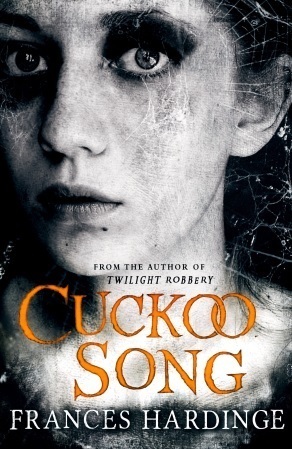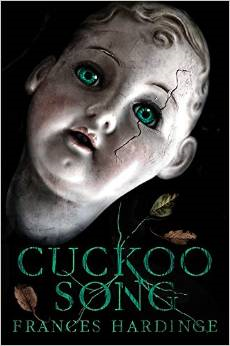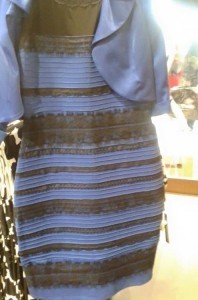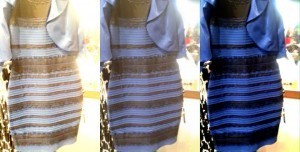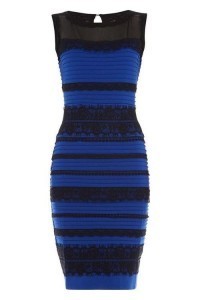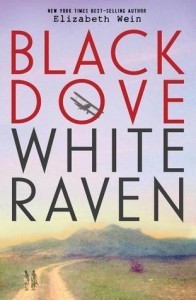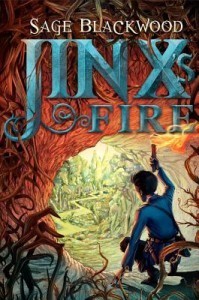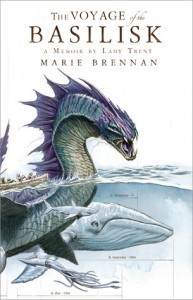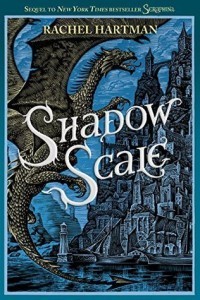Rachel Neumeier's Blog, page 348
March 3, 2015
Recent Reading: CUCKOO SONG by Frances Hardinge
Okay, yes, CUCKOO SONG is a wonderful book, just as you all said.
The cover is horrible. Horrible.
It’s not that this cover is inaccurate. It’s that the horror vibe is so strong. A cover is supposed to make you want to pick up the book and read the back, flip it open and read the first couple of pages. THIS cover is one I would actively avoid. Can it be that YA readers in the UK like this cover?
As it happens, we can also take a look at the new US cover:
Which is quite different, and I don’t dislike it as much, but it is STILL very much a horror cover. Do the publishers truly, truly believe this cover will draw Hardinge fans? Or do they think that the story IS horror, so that non-Hardinge fans will be inclined to pick it up and then pleased by the story?
All right, anyway, the story:
CUCKOO SONG may not be horror, but it is creepy, offering us a world in which you DO NOT WANT to have any dealings with the fae. During the course of the story, we find out that the fae are having trouble surviving in the modern world, to which my reaction kind of leans toward: WELL, GOOD. Mind you, there are hints that fae may not be uniformly vicious, but the ones we see during the course of the story are, I have to say, uniformly vicious.
The story is not about the trouble you can get into when you deal with the fae, though. Oh, the plot turns on that, sure. But the story is actually all about family. About grief, and the way it can distort a family. About the way your own unhappiness and emotional needs can blind you to the real people around you. About how parents can stunt a child and never notice, about how bitterness and envy rebound to harm everyone involved in the relationship.
Wow, that sounds dark.
Okay, the story is ALSO about finding your own center, about deciding who you’re going to be. It’s about love that holds through everything, and lends you strength when you think you’ve lost, and allows you to redeem yourself and those around you.
The relationship between Triss and her little sister, Pen, is the heart of the book. When the story opens, that relationship has been all but ruined. Triss has been taught to be weak, and Pen has been pushed into constant anger and rebellion. Triss’s role in the family is to be spoiled, pampered, swathed in cotton, and kept safe from absolutely everything, especially independence. Pen’s role is to be blamed for all trouble and tension in the family. As you might imagine, this is not a good situation for either of them.
Watching the two girls forge a new relationship is, as I say, the heart of the book. They each save the other while still terribly at odds, so we see how powerful the underlying bond between them must be, even though they don’t clearly realize it themselves. The relationship between them is not fixed easily or quickly, but by the end, they are true sisters again. (Sort of.) I loved everything about Triss and Pen. I’ve never seen anybody write such an angry nine-year-old. Hardinge does an amazing job with Pen.
The relationships between the girls and their parents is also fraught, and the arc there also moves from relationships that do harm to more positive, supportive relationships. Both the father and the mother are to blame for what’s gone wrong in their family, but Hardinge clearly has more sympathy for the father, who is active in trying to save his daughters, than for the mother, who turns her back on unpleasantness rather than step forward. Still, none of the human characters is presented as truly irredeemable — except for the tailor, who has no family to pull him back from his obsession. I don’t think that’s a coincidence. I think that’s the core of the story: that the bonds within a family are the most important support you have, even if your family is pretty thoroughly screwed up. That even a thoroughly screwed-up family can be sorted out, under the right (desperate) circumstances. Also that if you lose one family, it’s important to form a new one — as with Violet and the girls.
Hardinge captures significant truths about family in sharp, pithy observations:
In the Crescent family home, you had to be careful all the time, because if you did or said the wrong things, it never went away. It just hung there forever, an invisible black mark that everybody knew was there. Pen had found a place [with Violet] where you could say things that were rude and grumpy, and the other person would just be rude and grumpy back, and afterward you could sit eating bananas without an ounce of ill feeling.
Maybe you promised yourself that you would protect your other children from all danger. But you couldn’t do that unless they were in danger. That’s why Triss had to be ill — badly ill — so that you could save her, over and over again.
Hardinge really does remind me very strongly of Diana Wynne Jones (as I know many of you have said). But darker. (That, too.) Despite the darkness, this is not only a beautifully written and beautifully set story, but one which is moving, hopeful, and fundamentally true at its core. The Book Smugglers made me read it by putting it on their Hugo nominations lists. I’m glad they did. It’s definitely award-worthy, small scale but virtually perfect.
And FINE, I will now put more books by Hardinge on my TBR pile. I hear A FACE LIKE GLASS is excellent.
March 1, 2015
My Personal Hugo Nominations
Unless I change my mind in the next eight or so days, here’s what I’m nominating:
Short stories: This is the first year I’ve ever read or nominated any short stories! It’s kind of fun to be rooting for entries in more than the Novel category.
1. Hold Back The Waters by Virginia M. Mohlere. I didn’t really find that this story had enough closure for me, but I still liked it a lot.
2. Mad Maudlin by Marie Brennan. I really loved everything about this story.
3. The Earth and Everything Under by K.M. Ferebee. Honestly, I pretty much loved everything about this story, too.
4. When it Ends, He Catches Her by Eugie Foster. I did not like this one as much as the three above, but still, I would not mind seeing it on the ballot.
5. How To Become A Robot In 12 Easy Steps by A. Merc Rustad. What I liked best about this story was its structure and its (non-dark) ending.
Novelettes:
1. Nobody’s Home by Tim Powers. Craig brought this novelette to my attention at nearly the last minute. It’s a good yearfor ghost stories, I guess, as a couple of the short stories are more or less ghost stories. I liked it a lot.
I didn’t read any other novelettes.
Novellas:
In the end, I didn’t like any novella I read enough to nominate it. But then, I only read about four novellas. I’ll be interested to see what actually gets nominated.
Novels: I bet you already know most of these:
1. The Goblin Emperor by “Katherine Addison”
2. A Darkling Sea by James Cambias
3. Ancillary Sword by Ann Leckie.
4. Cuckoo Song by Frances Hardinge. You were all right; I loved it. Horrible cover.
5. And, as a surprise to us all, or at least to me, Trial By Fire by Charles Gannon.
Which I haven’t finished. I’m voting for it because I don’t think The Tropic of Serpents has a chance (I haven’t seen it on anybody else’s list, which I do think is too bad), because I’m voting for Brennan’s short story which I hope does have a chance, and because I’d rather see it on the ballot than a bunch of the titles that are fairly likely to get a lot of attention.
Here, incidentally, are Chaos Horizon’s official predictions for the novels that will actually make the Hugo ballot. These predictions affected my nominations: This list made me move Gannon’s book up to my fifth spot because I wanted to vote for a book that might have a chance of bumping some of the titles that Chaos Horizon thinks are likely.
For example, I’d rather see Gannon’s book on the ballot thanAnnihilation by Jeff VanderMeer because his Finch was so not to my taste; I would FAR rather see it than Correia’s Monster Hunter book, which I skimmed and thoroughly disliked; I would rather see it on there than Butcher’s Skin Game if only because I do not really want to read a 14 book series so I can read that one.
Now, if we see Gannon’s book on there instead of The Goblin Emperor I will GNASH MY TEETH.
A truly must see cat gif
You know, I only just recently looked at some pictures of The Snow in the Northeast. Wow, people. “Eight feet” looks like a lot more in pictures than I vaguely had in mind when I just heard you guys got a lot of snow.
I, being me, immediately started wondering how in the world people were coping with their pets? If you have a fenced yard, great, but how do you clear an area so that your dog can go out to do his business? If you don’t have a fenced yard, how in the world are you managing?
We just got four or five more inches here in MO, but that’s fine. It’s just snow. MODoT has been pretty good this winter for keeping the roads in good shape, so we may not even have a snow day tomorrow. In fact, I’ll probably take the dogs out for a run later because the new snow on top of the solid 2 inches of ice already on the ground improves traction a great deal, when you’re on foot.
Anyway, this does not answer the question of how dog owners are coping in the Northeast, but as cat gifs go, well, enjoy!
“Attention Policing”
I expect the term “attention policing” has been around since the dawn of time, but in fact I never noticed it before. Two thoroughly interesting blog posts brought it to my attention, in the context of The Dress. So you see how useful The Dress phenomenon is after all.
Anyway: here is the first, at The Atlantic.
Here is where that article, by Megan Garber (which is well worth reading in its entirety, btw) gets down to business:
So, yeah. You can read the dress — sorry, #thedress — as a metaphor: for our knee-jerk impulse toward partisanship (#TEAMBLUEANDBLACK), for the dynamic nature of observable reality (#TEAMWHITEANDGOLD), for the Internet’s ability to prove Walt Whitman right yet again, for its ability to prove Daniel Patrick Moynihan wrong yet again, for the fundamental challenge of consensus-building in American democracy, for Plato’s caves and Russell’s turtles and Bill Murray’s groundhog. What I want to focus on, though, is a little sliver of all that: a particular strain of commentary that arose during the explosion of conversation about #thedress. Here is a representative tweet, from God (well, @TheTweetofGod) himself: The color of a dress? Really? That’s what you’re asking Me? THE OCEAN LEVELS ROSE FOUR INCHES IN TWO YEARS. You know that, right?
This is a line of logic that will be familiar from most any Meme Event—the logic that says, basically, “don’t look at that; that is unimportant.” It’s attention-policing, and it’s reminiscent of so many other strains of rhetorical legislation that play out in online conversations: You can’t say that. You can’t talk about that. GUYS, the attention-policer usually begins. How can you be talking about a dress/a leg/a pair of llamas/a dancing neoprene shark when climate change/net neutrality/marriage equality/ISIS/China/North Korea is going on?
Ah, yes! We are all familiar with this type of argument, probably. “Attention policing” is a great term for it.
Megan Garber goes on: The problem with attention-policing—besides the fact that it tends to be accompanied by humorlessness and marmery, and besides the other fact that it serves mostly to amplify the ego of the person doing the policing—is that it undermines the value of Internet memes themselves. Those memes, whether they involve #thedress or #llamadrama or #leftshark or #whathaveyou, are culturally lubricating. They create, and reinforce, the imagined community.
All true! Good points!
But here is an answering post, in which Marissa Lingen points out:
I was reading this article on attention policing on The Atlantic, talking about major light memes of the week and the reaction against them. And it struck me that the author wasn’t addressing one of the major problems with attention policing, which I saw in action this week, and that is: it backfires. . . .
So yeah, you’d be disappointed if you were hoping that the next big wave of comments would be about Russian/Ukrainian politics or new treatments for bone cancer instead of badly photographed dresses. These two things are not very much equivalent, though, and “STOP TALKING ABOUT LLAMAS” never once got people to talk about bone cancer. Attention is capricious and fickle, but some parts of it are predictable, and that’s one. So if you’re frustrated with the llamas, go craft your comments about your new local cheesemaker, the anime you just fell in love with, or the charity you think is worthy. Make them pithy, make them shiny, make them interesting. Virtue does not always out in the attention economy. You have to help it.
Personally, I read the bit about attention policing backfiring and my instant reaction was: She’s right, it totally backfires. My second reaction was, Which is not actually a *problem*! Thank God attention policing backfires! Because if there’s one thing about attention policing that stands out, it is for me the self-righteous holier-than-thou attitude it exemplifies.
Though actually the tweet from God was kind of funny.
February 27, 2015
For those of you who somehow missed out on the ultimate Twitter experience yesterday
I know some of you are not on Twitter.
And some of you might have been busy with more important things yesterday . . . if you can imagine anything more important, which I know is problematic . . . and thus missed out.
So for all of you:
The Great Llama Chase, encapsulated for you by Buzzfeed. Link via The Book Smugglers.
And
The white-and-gold or blue-and-black dress phenomenon.
Here is the original photo:
Here is the adjusted picture from the linked article:
And here is the dress as, apparently, it really is:
For the record, I see the dress in the top picture as white and gold. I see ALL THREE of the adjusted pictures as white and gold. The last picture shows a dress that is clearly blue and black.
Much hilarity on Twitter, as you can imagine. Also much puzzlement in the real world, as two people can be standing right there looking at the same picture and see it completely differently. Also, apparently some people experienced a color change, shifting from Team White-and-Gold to Team Blue-and-Black as they came back to the same exact picture.
You see what you might miss out on if you don’t hover over social media all day? It’s frightening, really, the possibility that you might be the last person in the world to hear about the dress.
Which is definitely white and gold.
February 26, 2015
Balloons are magical
I’m busy busy busy, and in between business I am re-reading AKH’s Bones of the Fair because I was just in the mood, so no time right this minute to write a post on The Five Best and Five Worst Fantasy Cities to Live In, though that was tempting as soon as I thought of it.
Instead, for the moment, let me share with you a few pictures I have accumulated and have not found a reason to post:
There’s just something about balloons, especially with light and cliffs. Don’t tell me about updrafts and all that stuff. They are plainly magical.
Incidentally, balloon rides are evidently a Thing in Cappadocia, Turkey. Which would be a seriously cool place to visit someday. If I ever do make it to Turkey, I will definitely be up for a balloon ride.
February 25, 2015
Actually quite a few notable March releases –
Well, well, people keep sending me links and notes about upcoming titles for March, and there are more must-buys on the list than I expected.
Not only do we have The Voyage of the Basilisk, Shadow Scale, and Pyramids of London, we also have:
Black Dove, White Raven by Elizabeth Wein.
AND we also have Jinx’s Fire by Sage Blackwood.
About time. I’m worried about Simon, who was caught in a pretty nasty trap at the end of the last book.
Also, Dead Heat, the latest installment in Patricia Briggs’ Alpha and Omega series, is out in March.
Not only that, but Vision in Silver is coming out from Anne Bishop. That’s the third book in her enormously catchy “Others” series. I’m dying to read it, despite the worldbuilding implausibility, and not every author can make me just look away from implausibility and enjoy the story.
I should write a post about that sometime because now that I think about it, I can think of other authors who are like that for me and I think I can see at least some of what they’re doing successfully that makes their books work for me.
Okay, and while I’m at it, let me add that Tracker, the 16th Foreigner novel, is supposed to be coming out in early April, so there’s that, too.
This is why I never bother to declare a moratorium on buying new books while I whittle down my various TBR piles. There’s just no hope of any such moratorium sticking for more than a week or two.
Anybody else got a March release they’re really looking forward to?
February 24, 2015
Sometimes we should be less confident about our predictions
This is really funny:
THE EXECUTIVE COMPUTER
By Erik Sandberg-Diment
Published: December 8, 1985
The New York Times
Note the date. Then check out the prediction:
The limitations come from what people actually do with computers, as opposed to what the marketers expect them to do. On the whole, people don’t want to lug a computer with them to the beach or on a train to while away hours they would rather spend reading the sports or business section of the newspaper. Somehow, the microcomputer industry has assumed that everyone would love to have a keyboard grafted on as an extension of their fingers. It just is not so. … the real future of the laptop computer will remain in the specialized niche markets. Because no matter how inexpensive the machines become, and no matter how sophisticated their software, I still can’t imagine the average user taking one along when going fishing.
Ah, how certain we sometimes are that we know what’s on the way up or the way down! I especially like the mention of how people would rather read the newspaper. The newspaper! Remember those? They were those paper things that got ink all over your fingers as you spread their pages out over the entire table trying to find the second half of the story you were reading. So inconvenient, in so many ways!
Remind me not to make public predictions about, oh, future trends in YA genre fiction or whatever.
But if I do, I hope I’ll remember to look back in thirty years and see whether I got anything wrong or was totally, totally off base.
Oh, check out this coming release!
How very handy that I just read The Tropic of Serpents! Because look here:
Tor.com lists this for a March release.
Okay, cool stuff here: See that title? From the title ALONE I would know that this is going to be a riff on Darwin’s voyage on the HMS Beagle. But I also knew that because of how Lady Trent refers to the next installment in the second volume of her memoir.
I have a copy of the Voyage of the Beagle downstairs, along with the Origin of Species and all my other stuff by Darwin and other important figures in early evolutionary thought. I’m definitely going to bring The Voyage of the Beagle upstairs and review it before reading The Voyage of the Basilisk. One of the things I admire most about this series is how Brennan captures the flavor of the early naturalists’ explorations and writing. I want to be able to really appreciate how she plays with real history in this third book of her series.
Once again Tor’s put out a great cover. Look, do you see that we have four quite distinct taxonomic groups represented? The cover artist wasn’t going just for “Big Famous Marine Animals”. This is a cephalopod mollusk, a chondrichthyes “fish” — sharks are only “fish” by tradition, really — a mammal, and a sea serpent. Very, very nice choices if you want to cover a huge evolutionary spectrum and still pick animals anybody would recognize. That is so cool.
Hardly any of the other March releases catch my eye — if you happen to click through, is there any author or series there you’re particularly looking forward to? — but there is one other title I noticed:
Shadow Scale, Hartman’s sequel to Seraphina, is also coming out in March.
I read the first book just last year, so I’m in a good position to read the sequel now without having to review.
February 22, 2015
What do you think of these 15 obsolete words?
Laura Moss writes that we should be resurrecting these 15 obsolete words.
First, I don’t think “slugabed” is really obsolete. I’m sure I’ve seen it, and maybe even used it myself. It definitely sounds familiar.
Second, is “younker” to mean young person really obsolete? Or is it regional? I kind of had the impression it was rural / southern / regional somehow, and perhaps somewhat old-fashioned, but not actually obsolete.
Third . . . I must admit that I am not familiar with any of the other words on that list. I’m not sure I believe in them. Have any of you ever heard any of them used? Were they ever really in common usage? Actually, I don’t like most of them very much and I’m pretty much okay with letting them slip away into the past, if they were ever in general use in the first place.
Except “Cockalorum.” I must admit, I like that one.

